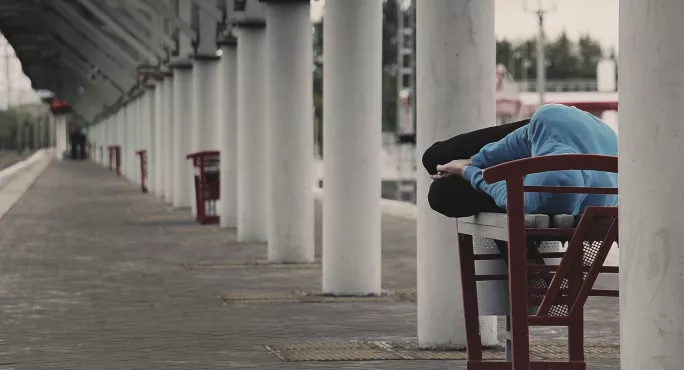- Home
- ‘We owe it to our young people to make sure homelessness isn’t an invisible issue’
‘We owe it to our young people to make sure homelessness isn’t an invisible issue’

This isn’t a blog about education. Or, to put it another way, this is a blog completely about education.
I’m writing in Manchester, a city I hadn’t really known before. I’ve enjoyed briefly getting to know its art galleries and libraries, its culture, its humour, its accents. It’s a city that knows itself, with a pride that’s understated and a vibrancy that’s infectious. Yes, I like it here.
And Manchester has exuded a self-confidence that the Conservative Party conference - which I’ve been attending on behalf of the Association of School and College Leaders (ASCL) - demonstrably hasn’t. It left me underwhelmed.
Homelessness nationwide
But walking through those early morning streets to make my way into various fringe events, I noticed something I increasingly find when I walk to work through the Leicester suburbs. It’s what I see in the many towns and cities I now visit. From Exeter to Durham, Birmingham to London, from Belfast to Cardiff: our streets are filled with people I hadn’t noticed before or who simply weren’t there.
These are the homeless, the people for whom streets aren’t just places to walk and chat, but places to sleep. Walking through Manchester into the secure conference zone where well-fed people were talking about policy, debating policy, thinking, listening and laughing, I was starkly aware that I was one of the privileged on the inside while the voiceless sat out there on the streets beyond.
This isn’t a narrow political point. I felt the same in Brighton at the Labour conference last week. These conferences are a bubble. The real world, with its tawdry consequences, lies beyond.
A young woman in Manchester stopped me yesterday. I assumed she was compiling one of those surveys none of us has time for. She said to me: “I hate doing this, I really hate it, but can you let me have some cash?”
That direct approach is as unusual as it is unnerving. More often it’s not a spoken request for cash. It’s beseeching eyes looking up from a pavement. It’s a Starbucks paper cup held up for coins.
When did we let this happen?
I suspect lots of us, walking past and trying not to make eye-contact, feel the sense of shame I’ve been feeling. My worry as an educationalist is seeing such visible signs of lives blighted by poverty, mental health issues, substance misuse, addiction and relationship breakdowns. These people were all children in our schools once.
If you can judge a society by the way it treats its most vulnerable, we are in trouble. Again, as an educationist, I hate the thought that the young people currently in our schools and colleges might come to think that what they see in our town and city centres is in some way normal, that it’s an acceptable form of collateral damage in one of the world’s wealthiest economies.
A new approach
So disturbed have I become by this issue that on Monday morning, I went to a fringe event which was about the crisis of homelessness. And there, suddenly, I started to regain optimism. Jon Sparkes, of the charity Crisis, said that there were around 160,000 households blighted by homelessness. He talked of sofa surfing, rough sleeping, squatting. And the numbers are increasing inexorably. But he praised a new joined-up approach, based on evidence of what works.
Conservative MP Bob Blackman talked through how his private members’ bill had brought the issue centre stage. New metro mayor Andy Street talked of the coordinated actions being taken to tackle homelessness in Birmingham. He said that the moral imperative came from the people of the West Midlands - in the suburbs as well as the city - who said, simply, “This is wrong”.
What I came away with was a sense of the difference we can make when politicians, business leaders, charities and those of us in the public sector work together.
This isn’t a blog about education, but it’s all about education.
We owe it to our young people to make sure homelessness isn’t an invisible issue. We owe it to them to teach about rights and responsibilities, to know what leads to lives splintering and who to turn to.
And we owe it to society more generally to demonstrate that in a fragmented, divided political landscape, it’s only through working collaboratively, gaining a sense of a social mission, that we can make a real long-term difference to the things that matter.
That’s what I learnt in that room in Manchester.
Geoff Barton is general secretary of the Association of School and College Leaders. He tweets @RealGeoffBarton
Want to keep up with the latest education news and opinion? Follow Tes on Twitter and Instagram, and like Tes on Facebook
Keep reading for just £1 per month
You've reached your limit of free articles this month. Subscribe for £1 per month for three months and get:
- Unlimited access to all Tes magazine content
- Exclusive subscriber-only stories
- Award-winning email newsletters



